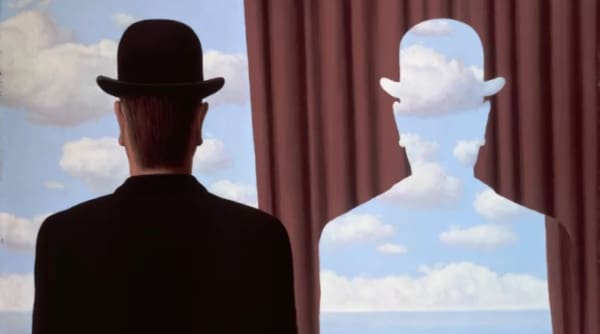Planes are disappearing from the skies, stocks are disappearing from the shelves, and workers are disappearing from their jobs. It is happening all around us. Wherefore vanish these, purgatorial shadows?
It happened to me just days ago. I noticed that I vanished. It began one quiet afternoon during a discussion with my supervisor at the assisted living home where I work two evenings a week. Mid-sentence, I noticed that she was looking through me, as if I were not sitting right in front of her. She was looking past me, to the empty space she saw. She saw it in my future. Her gaze was a mix of pity and regret. She was seeing what I did not then know; she was seeing that I would soon vanish.
Her look suggested Dickens’s description of Marley’s ghost: “His body was transparent, so that Scrooge, observing him, and looking through his waistcoat, could see the two buttons on his coat behind.” (Stave One, A Christmas Carol)
The next time I arrived for my shift, my name was gone from the work schedule. Not crossed out, or re-assigned, just gone. I was not on the schedule because I did not exist.
Left on the desk, with my name highlighted, was a Religious Accommodation Request Form. I had not requested this form. I had not checked any box on any paperwork. But there it was, in the community-wide staff notebook, with my name written next to the words “must prove religious exemption.” Highlighted. With an asterisk.
We often think, erroneously, that during the Second World War European Jewry were summarily rounded up, sent to the concentration camps, and killed. But it did not happen that way. Not at all. First, the Jews were marked as different. They received their yellow stars. They were categorized as “non-Aryan.”
Then the restrictions began. You could not ride a bicycle or frequent certain movie houses. You could no longer attend the local school. Your every aspect of day-to-day life took place in a segregated reality.
And then, the Jews began to vanish. They vanished from their jobs, they vanished from the streets. Children coming home from school would find their parents gone.
And those around them? Those who saw these people, law-abiding, productive citizens, suddenly nowhere to be found? Did they inquire about the disappearances? Most pretended not to notice. Safer not ask; better to mind one’s own business.
And so, out in the open, before the world’s very eyes, the Jews of Europe vanished.
And now, today, in the middle of a prosperous nation, NFL commentators, nurses, doctors, pilots, police, are quietly vanishing. Law-abiding citizens. Loyal employees. The ones who came on time, and stayed late, and worked heroic hours during the crisis, and loved their profession. Gone.
So, now, as I vanish, I am supposed to prove my right to exist. It does not matter that my name is on the Employee Thank You board. It does not matter that I know the names of the staff, the residents, their dogs, their grandchildren, and their favorite ice cream flavors. Those human connections are secondary. They do not matter if you do not exist.
The Religious Accommodation Request Form provided a space to “Describe the religious belief or practice that necessitates this request for accommodation.” And so, on the three lines provided, I wrote:
“From the first moment of his existence, a human being must be recognized as having the rights of a person – among which is the inviolable right of every innocent being to life.” (#2270 Catechism of the Catholic Church, reference to Congregation for the Doctrine of the Faith, Donum vitae, I,1, by Joseph Cardinal Ratzinger)
If I were being shown the door, at least I would leave with the most vulnerable at my side and Ratzinger’s words on my lips. I wanted to print the bold Statement of the Catholic Bishops of Wisconsin on the Protection of Conscience, but my computer access had been closed. Ghosts, after all, can’t log in.
And so, it begins. I walked into the balmy evening unsure if I will walk back into the assisted living residence. Like so many facing a similar fate, I wait for a call, or a text, or an email, or a notification of some sort, declaring me fit or unfit for duty.
Most likely, I will have to “obtain supporting documentation regarding my religious practice and beliefs to further evaluate my request for a religious accommodation.” It was, after all, under these words that I placed my signature.
To prove that I am Christian. We were asked, recently, at the school where I teach, to think about our lives, and to review whether there would be enough evidence to convict us of being Christians. We all said we hoped that there would be enough evidence.
In her letter to Pope Pius XI of April 20, 1933, written just prior to the loss of her teaching job for being non-Aryan, before she was given a yellow star or forced to flee her homeland, and before she was arrested, deported, and killed for her fidelity to the Catholic bishops’ protest of the deportation of Jews, St. Edith Stein prophetically declared:
For the time being, the fight against Catholicism will be conducted quietly and less brutally than against Jewry, but no less systematically. It won’t take long before no Catholic will be able to hold office in Germany unless he dedicates himself unconditionally to the new course of action.
And, indeed, it has not taken long. In our own world, in our own day, in a shockingly short span of time, many committed Catholics, Christians, and other witnesses of conscience, are quietly holding onto their convictions, and vanishing from our midst in plain sight.
Image: La Décalcomanie by René Magritte, 1966 [Centre Pompidou, Paris]




